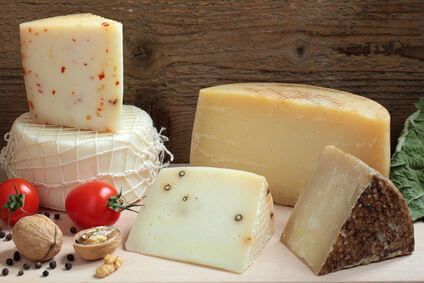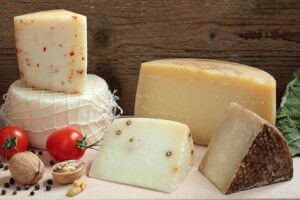
After menopause, many women take calcium supplements, as well as vitamin D, to help with calcium absorption. A number of conflicting studies exist concerning calcium supplements, and whether or not they are effective, or detrimental.
An analysis recently published online in the journal, Menopause, by the Women’s Health Initiative (WHI) found that postmenopausal women who were taking hormones and who also took calcium and vitamin D supplements had a significantly lower rate of hip fractures, compared to those who only either took supplements or hormones.
Supplements were not found effective for those women who were not on hormone treatments. This was a rather large-scale study, utilizing data from almost 30,000 women.
However, last February, the United States Preventive Services Task Force issued a recommendation that postmenopausal women should not take calcium and vitamin D supplements if they did not have other risk factors. This recommendation was made after they had reportedly reviewed over 135 studies, which showed little to no efficacy of the supplements in preventing fractures in healthy women.
To make matters even more complex, some studies have linked calcium supplements to a higher risk of both heart attacks and death from heart disease. Other studies of a similar nature have found no link between calcium supplements and heart issues.
To explain the links that have been suggested between calcium supplements and heart disease, JAMA (The Journal of the American Medical Association) researchers hypothesize that when calcium is taken as a supplement, it enters the bloodstream all at once, and can lead to arterial calcium deposits. This has been observed in some advanced kidney disease patients who take calcium supplements.
On the other hand, when calcium is received from natural food sources, it enters the bloodstream gradually. Postmenopausal women who are otherwise healthy should consider getting their calcium from their diets, and their vitamin D from good, old-fashioned sunshine.
 Organic milk, yogurt and grass-fed cheeses are the obvious food sources of calcium. Green, leafy vegetables such as collard greens, kale, spinach and turnip greens are also rich in calcium. Make sure to get these veggies organic; some of them have high pesticide levels when grown commercially. If you do not like the taste of these vegetables, try blending them into a smoothie along with your favorite organic fruits.
Organic milk, yogurt and grass-fed cheeses are the obvious food sources of calcium. Green, leafy vegetables such as collard greens, kale, spinach and turnip greens are also rich in calcium. Make sure to get these veggies organic; some of them have high pesticide levels when grown commercially. If you do not like the taste of these vegetables, try blending them into a smoothie along with your favorite organic fruits.
Note: The National Osteoporosis Foundation states that the recommendations against taking calcium supplements, “do not apply to women with osteoporosis or broken bones after age 50 or those with significant risk factors for fracture.”
Check with your health practitioner if you are unsure whether you are at risk. For postmenopausal women with osteoporosis or other risk factors, the National Osteoporosis Foundation maintains that the benefit of calcium supplements may be worth any potential risks.
-The Alternative Daily
Sources:
http://www.sciencedaily.com/releases/2013/06/130626113516.htm
http://well.blogs.nytimes.com/2013/04/08/thinking-twice-about-calcium-supplements-2/
http://www.healthaliciousness.com/articles/high-calcium-vegetables.php

